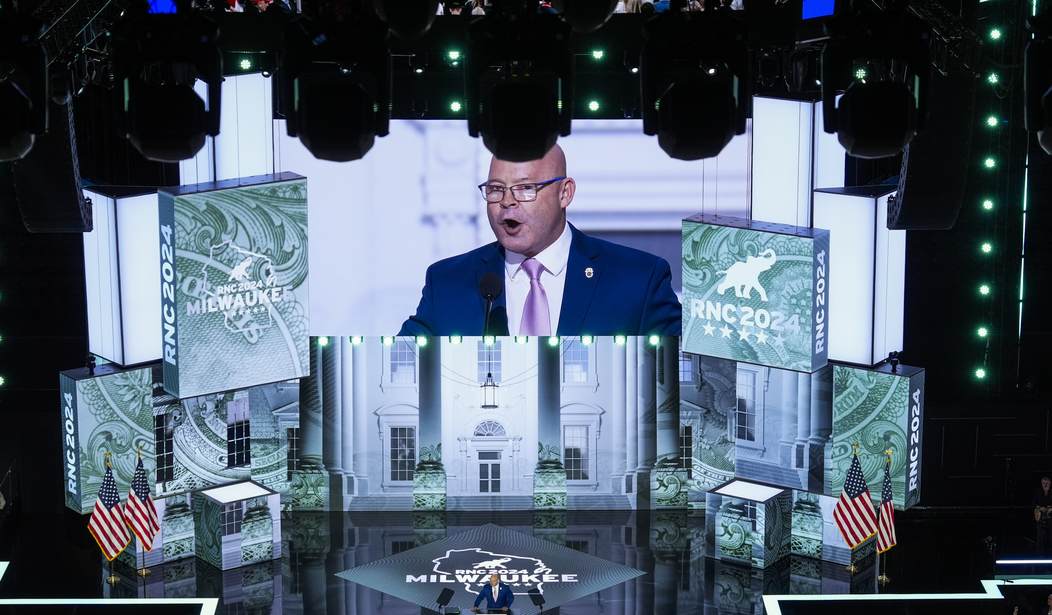The appearance of Sean O' Brien, president of the Teamsters Union, in a key speaking slot at the Republican National Convention, raised a lot of eyebrows across the political spectrum about what is going on both with unions and with the Republican Party.
The union agenda and the traditional Republican agenda -- free markets, free trade, free labor market competition -- is not a cocktail that we usually think of as going together.
But we are in a political time of razor-thin margins. Swing states will be won by margins hovering around 1%. Winning swing votes depends on the ability to penetrate the gray, to win over voters who may not be 100% on board with the candidate or the party's whole platform -- but who see the benefits of one side as exceeding the costs of the other side.
Trump has had success with union voters. In 2016, he got 42% of the vote of union households. In 2020, 40%.
According to a recent survey from Pew Research, 39% of union members are Republicans.
Furthermore, when we examine the polling data, we see a disconnect between what voters think about unions and what workers are actually doing.
Regarding the latter, the data is clear that fewer and fewer workers are joining unions.
In 1983, 20% of workers belonged to unions. Forty years later, in 2023, this was down to 10%.
Yet, per the polling, sentiment across the country indicates displeasure with this trend. Per Pew, 54% say the decline in union membership is bad for the country, and 43% say it's good.
Even among conservative Republicans, per Pew, although 60% say the drop in union membership is a good thing, still 38% think it's bad.
Recommended
The biggest disconnect is really between the professional leadership of unions and the sentiments of American workers.
As already noted, despite the rhetoric of union leadership, fewer and fewer workers are joining unions. And, despite the fact that some 4 in 10 union members identify as Republicans, political spending of organized labor is one-sided for Democrats. Per opensecrets.org, so far in 2024, of $165,892,301 political expenditures by labor, 86.23% went to Democrats and 13.27% to Republicans.
So, regardless of what O'Brien had to say at the Republican convention, it was a win for Republicans for him to appear. O'Brien's rank and file are far more in or leaning toward the Republican camp than their leadership, and that relationship is strengthened by seeing the president of one of the major unions show up to speak to Republicans.
The most unfortunate part of O'Brien's remarks is his deeply distorted portrayal of what it is that American workers are up against.
The idea that somehow, per O'Brien, corporations control everything ("There are no consequences to the company -- only the worker") and that unions are about giving working Americans organized power to push back is ridiculous.
If corporations controlled everything, then their stock prices would do nothing but go up. But this is not the case.
The Dow Jones list of 30 of America's most influential industrial corporations has changed 58 times since its inception in 1896.
Big companies come and big companies go because markets are competitive and constantly changing.
Furthermore, just as the American worker is further to the right than we might expect, the leadership of corporate America is further to the left than we might expect. Over recent years, the DEI, ESG and woke agendas have rooted in America's largest corporations.
The struggle in our country today is not about business and labor being at each other's throats.
The struggle today is about keeping our marketplace free, open and competitive.
Free, competitive markets mean that what will prevail is not business or labor but excellence and merit.
This is what serves our nation best, at home and internationally.

























Join the conversation as a VIP Member